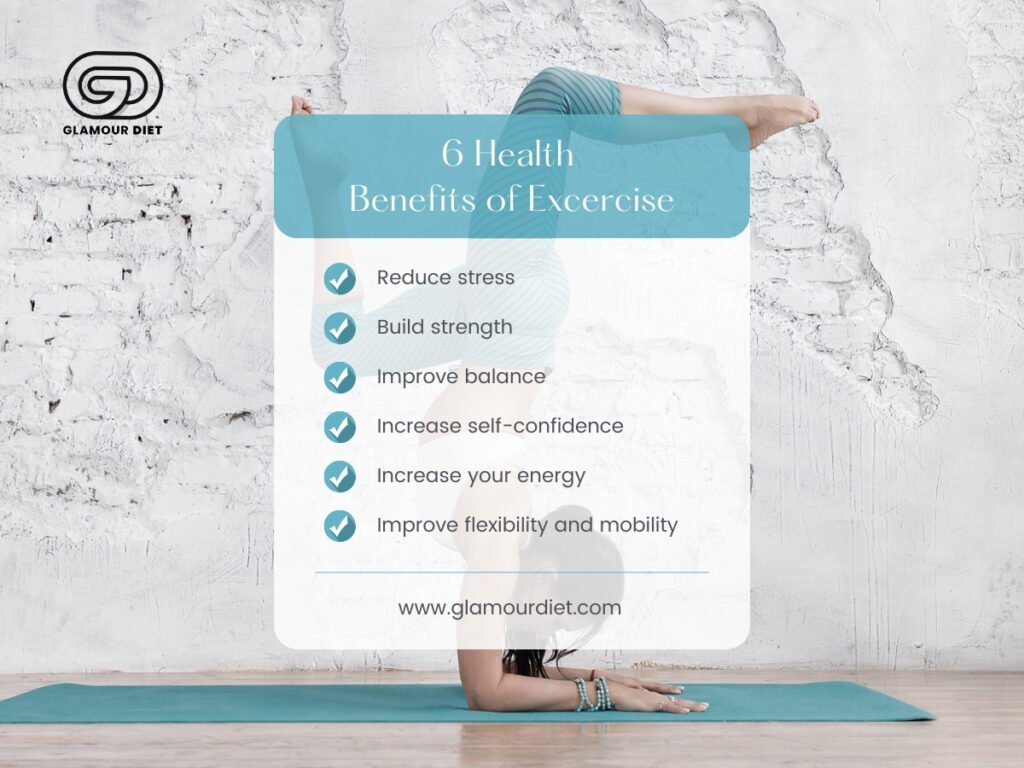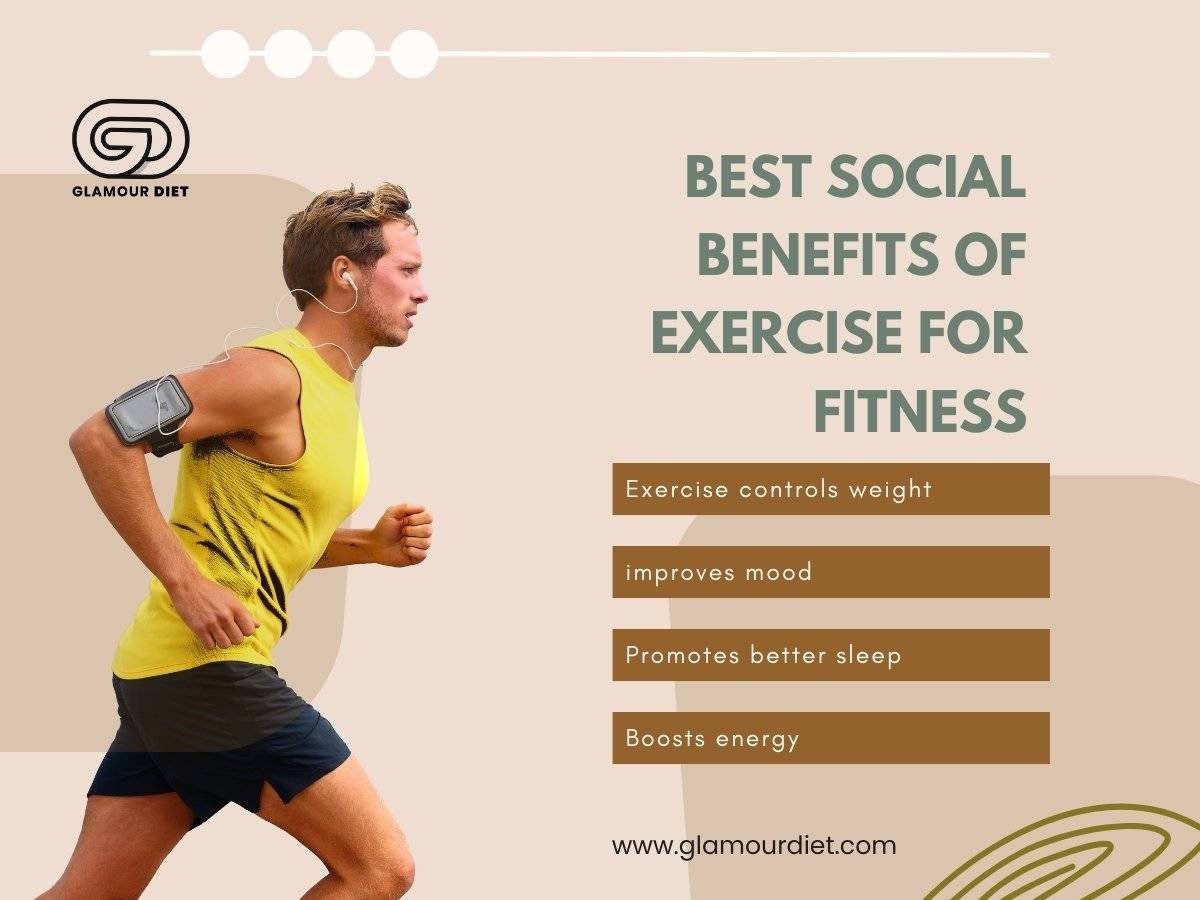Realize the Social Benefits of Exercise for Fitness and Well-being
Introduction: The Social Benefits of Exercise
When we think of exercise, the first thing that often comes to mind is its physical benefits, like weight loss or muscle gain. But have you ever considered how exercise impacts your social life? Social health refers to our ability to interact with others and form meaningful relationships, and it plays a crucial role in our overall well-being. Exercise can significantly enhance social well-being, helping us build connections, improve communication, and create a sense of community.

The Impact of Exercise on Social Interactions
Exercise can be a powerful social connector. Whether running in the park, lifting weights at the gym, or taking a yoga class, these activities provide opportunities to meet new people and engage in social interactions. Moreover, engaging in exercise routines or sports with others can sharpen your communication skills, helping you express yourself better and connect more deeply with those around you.
Building Friendships Through Group Fitness
Ever notice how people who attend group fitness classes often become friends? Group workouts have a unique way of bringing people together. When individuals come together to achieve a common goal—whether it’s completing a tough workout or improving their fitness—they tend to bond over their shared experiences. These shared activities often lead to strong, lasting friendships.
Creating a Sense of Community and Belonging
Exercise can help boost a feeling of society and belonging, specifically when you participate in group workouts. Local gyms and fitness clubs are often more than just places to work out—they are social hubs where people come together to share their fitness journeys. Being part of such communities can provide a strong sense of belonging and support, enhancing both your physical and social health.
Enhancing Social Skills Through Exercise
Exercise isn’t just about physical improvement; it’s also about social growth. Engaging in team sports or group activities can teach valuable social skills such as teamwork, cooperation, and communication. Furthermore, as people reach their fitness goals, they often experience an increase in self-confidence, which can significantly improve their social interaction ability.
Exercise and Work-Life Balance
Struggling to balance work, life, and social engagements? Exercise might be the answer. Regular physical activity helps to establish a healthy routine that balances personal and professional responsibilities. Moreover, exercising regularly can improve your social life by reducing stress and increasing energy levels, making you more inclined to socialize.
Strengthening Personal Bonds with Family and Friends
Exercising with family and friends can be a great way to spend quality time together. Whether it’s a weekend hike, a friendly game of tennis, or a shared yoga session, these activities not only improve your fitness but also strengthen your bonds. Participating in physical activities with loved ones provides opportunities for bonding and creating cherished memories.
Reducing Social Isolation and Loneliness Through Exercise
Social isolation and loneliness are growing concerns in today’s fast-paced world. However, exercise offers a practical solution. Joining soundness lessons or sports groups can provide a sense of belonging, decreasing sensations of loneliness. Physical exercise encourages inclusivity and facilitates someone to come together, promoting a purpose of unity and fellowship.
Boosting Confidence and Self-Esteem with Fitness
The practice has been shown to increase self-esteem and confidence. As individuals achieve their fitness goals, they often feel a sense of accomplishment, which translates into improved social confidence. Feeling good about oneself naturally enhances social interactions, making people more open and approachable.
Participating in Community Exercise Programs
Community exercise programs, such as local sports leagues or charity runs, provide fantastic opportunities to engage with others. These programs encourage participation from people of all ages and fitness levels, promoting social inclusion and community spirit. Plus, they’re a fun way to stay active and make new friends!
Exercise for Children and Teenagers: Promoting Positive Social Behavior
For children and teenagers, exercise is not just about physical development; it’s also about social growth. Engaging in sports or physical activities helps young people develop essential social skills, such as teamwork, leadership, and cooperation. Facilitating common training from a young age enables beneficial colonial evolution and allows youngsters to create positive social manners.
Exercise’s Role in Enhancing Social Confidence
Many people struggle with social anxiety, but regular exercise can help mitigate these feelings. Engaging in group exercise classes or team sports can gradually reduce anxiety levels, making social interactions more comfortable. Regular physical activity is a confidence booster, encouraging individuals to step out of their comfort zones and engage socially.
Benefits of Exercising in a Social Environment
Gyms and fitness classes provide a unique social environment where people can engage and interact with others. The social atmosphere of these settings encourages interaction and often leads to new friendships. When people exercise in a social environment, they’re more likely to stick to their fitness routines, making it a win-win for both fitness and social life.
Physical Fitness as a Tool for Social Change
Physical fitness isn’t just about personal health—it’s also a tool for social change. Fitness programs that promote inclusivity and diversity help bridge social gaps and encourage broader social cohesion. By bringing people from different backgrounds together, exercise can help foster understanding, tolerance, and unity within communities.
Scientific Benefits of Exercise on Social Health
Exercise Releases Endorphins that Enhance Mood and Social Behavior
- Physical movement enables the presentation of endorphins, the body’s natural attitude elevators. Studies have shown that these endorphins help improve mood, which can make people more open to social interactions and better able to handle social stressors. When individuals are in a positive mood, they are more likely to engage in social activities, thus enhancing their social life.
Physical Activity Increases Oxytocin Levels, Promoting Social Bonding
- Exercise has been linked to increased oxytocin levels, often called the “love hormone.” This hormone plays a critical role in social bonding and trust. Research indicates that higher levels of oxytocin can improve social bonding, making people more empathetic and connected to those around them. This is especially beneficial in group practice stages, where someone is likely to feel a feeling of connection and togetherness.
Improved Cognitive Function Enhances Communication Skills
- Routine exercise has been revealed to enhance mental function, including remembering, concentration, and executive role. Enhanced mind function can guide to more useful communication skills, as individuals are better able to process and respond to social cues, remember important details about conversations, and engage in meaningful dialogue. This makes exercise a powerful tool for enhancing social skills and building stronger relationships.
Reduced Stress and Anxiety Levels Facilitate Better Social Interactions
- Exercise is a well-known stress reliever. Scientific studies have found that regular physical activity can reduce cortisol levels, the body’s primary stress hormone. Lower stress levels make it easier for individuals to engage in social interactions without the hindrance of anxiety or tension. This creates a more relaxed and enjoyable social environment in a group fitness class or a social gathering.
Increased Neuroplasticity Fosters Adaptability in Social Settings
- Neuroplasticity, the brain’s ability to adapt and change, is enhanced through regular exercise. This increased adaptability makes it easier for individuals to adjust to new social environments and situations. For example, people who exercise regularly may find it easier to join new groups or try new activities, fostering more diverse and dynamic social interactions.
These points highlight the scientific benefits of exercise on social health, providing a strong foundation for readers to understand how physical fitness can positively influence their social lives.
Conclusion: Embracing the Social Benefits of Exercise
In conclusion, the social benefits of exercise extend far beyond just getting in shape. Regular physical activity can improve social interactions, boost confidence, reduce loneliness, and foster a sense of community. So why not bring the benefit of these advantages? Engage in a group workout, join a local sports team, or simply start exercising with friends and family. The rewards are not just physical—they’re social too!
FAQs
- How can exercise help me make new friends?
Exercise provides numerous opportunities to meet new people, whether in a gym, a fitness class, or a local sports league. Shared experiences in these settings often lead to new friendships. - What types of exercise are best for socializing?
Group fitness classes, team sports, and community events like fun runs or charity walks are great for socializing, as they bring people together around a common goal. - How does exercise improve my social skills?
Regular physical activity, especially in a group setting, encourages teamwork, cooperation, and communication, all of which are essential social skills. - Can exercise help with social anxiety?
Yes, engaging in group exercises or team sports can help reduce feelings of social anxiety over time, as it builds confidence and promotes positive social interactions. - What are some community activities that promote both fitness and socializing?
Community sports leagues, fitness boot camps, charity runs, and group hiking events are excellent for promoting both fitness and social interaction.

